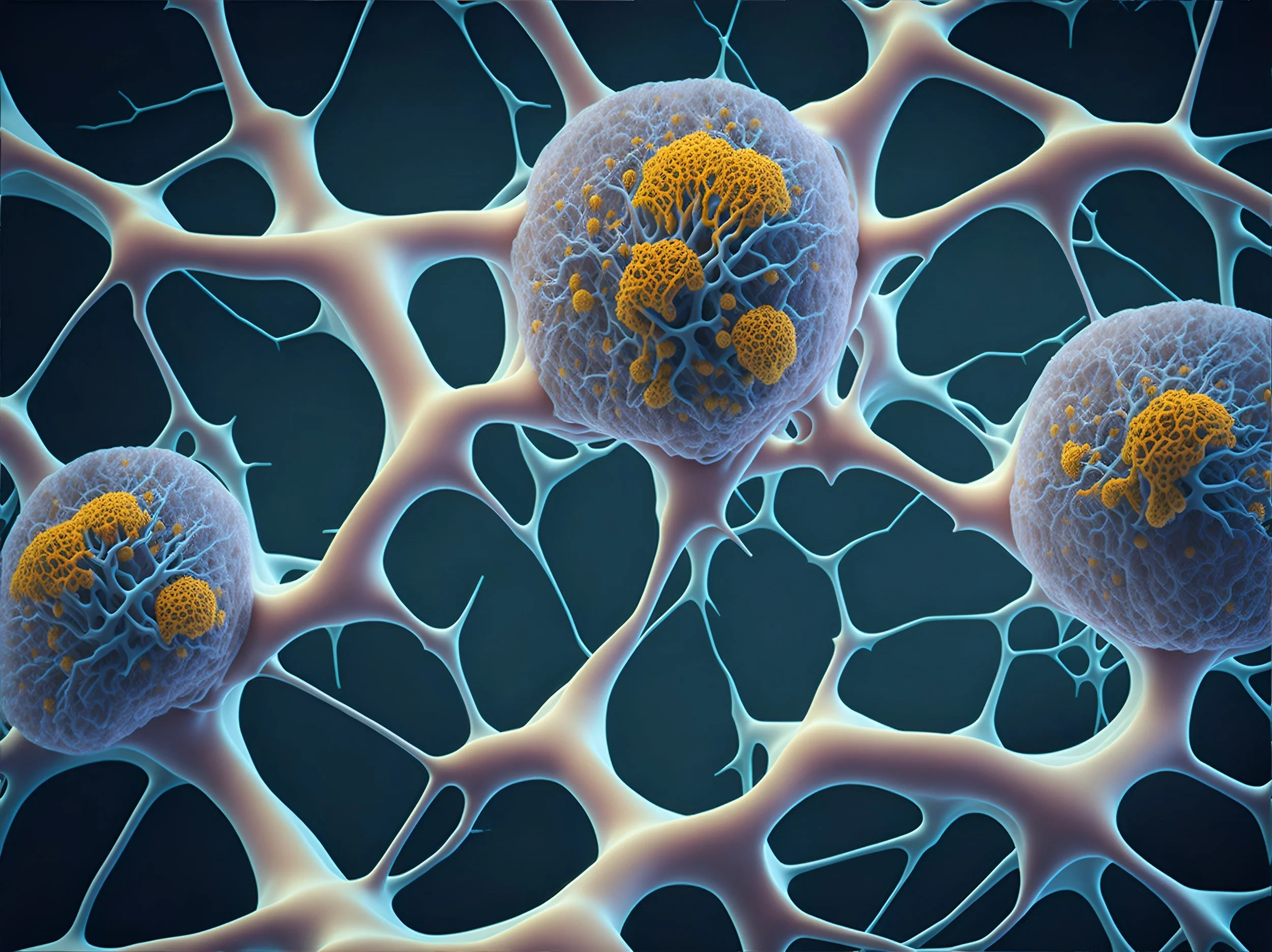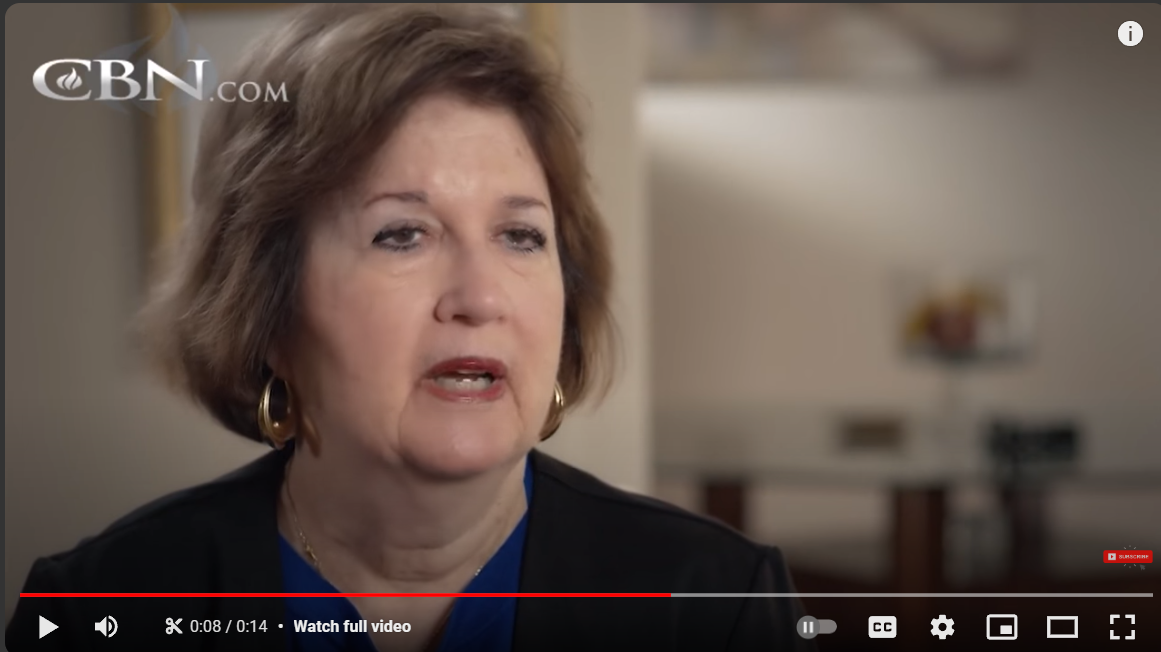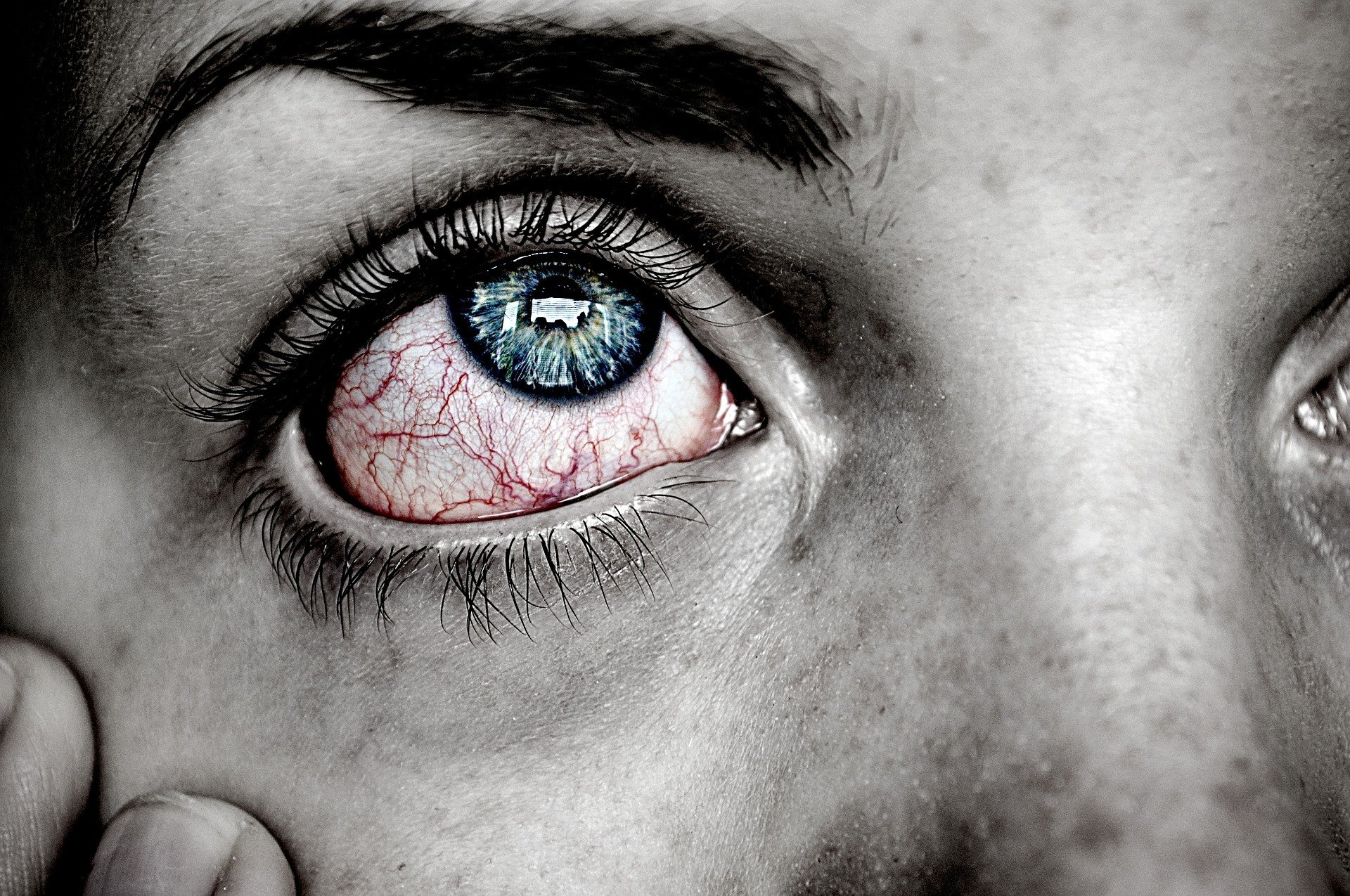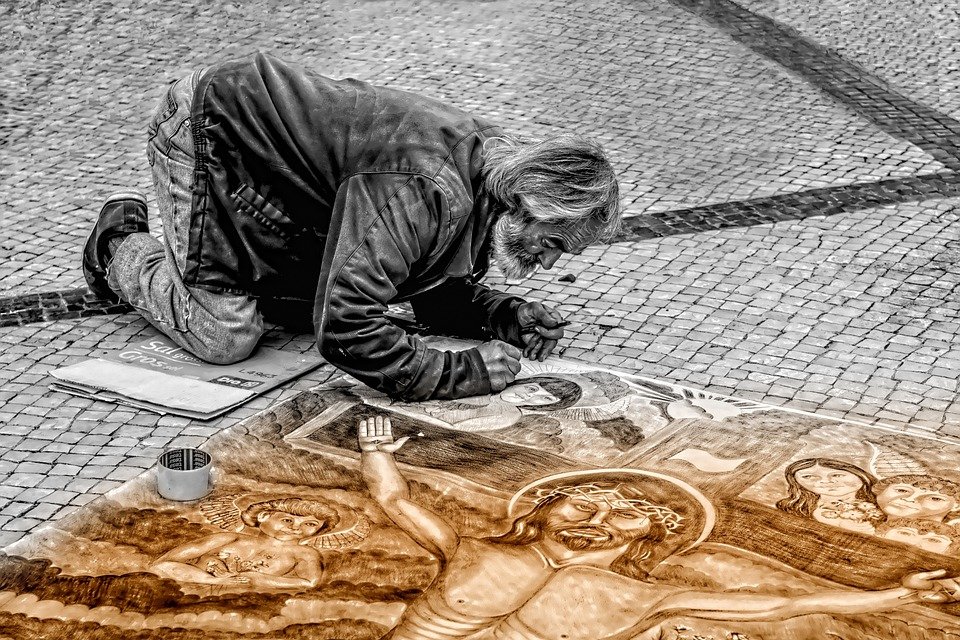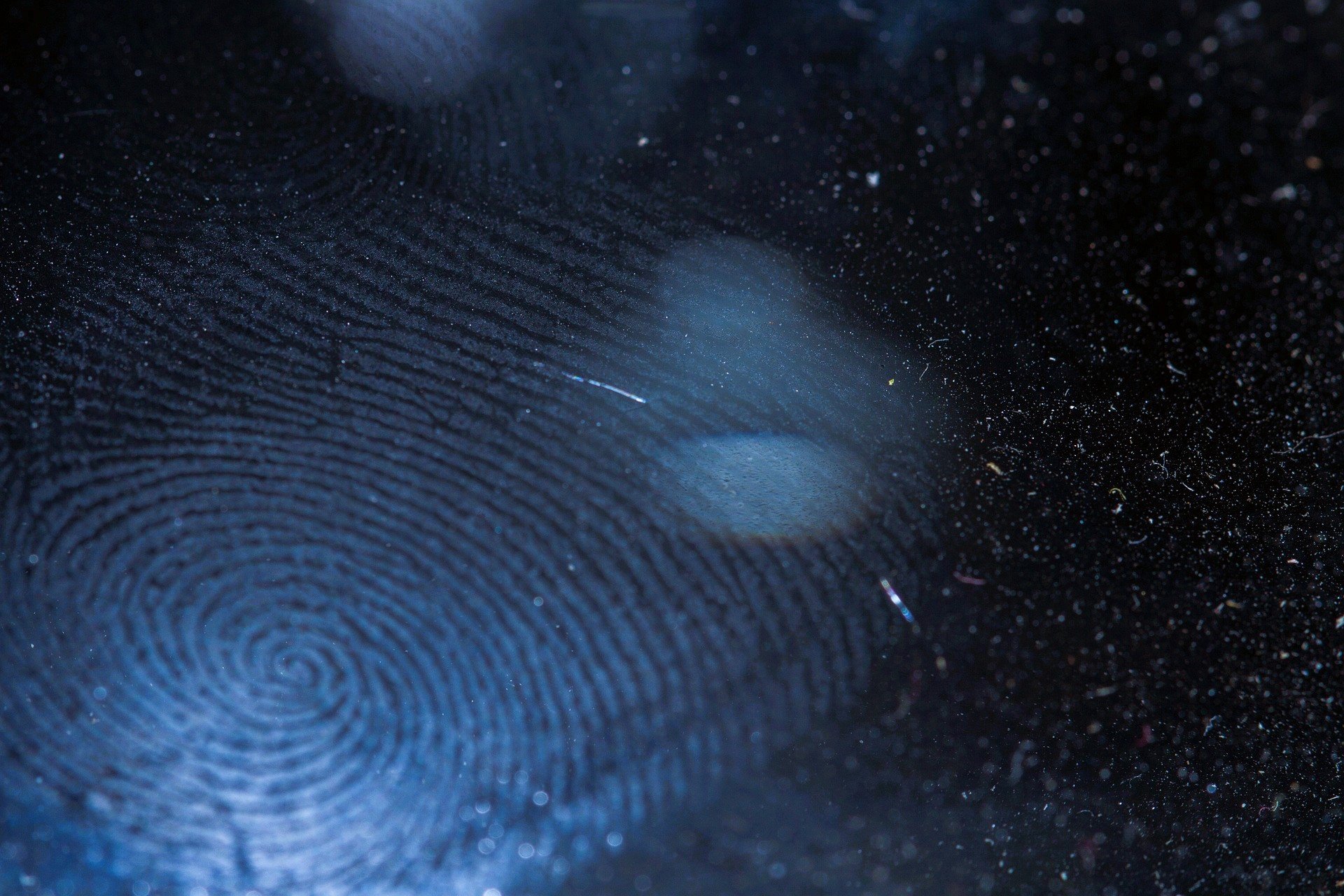“revenant”
“A person who has returned,
as if from the dead.
““O Lord my God, I cried out to you, and you restored me to health. You brought me up, O Lord, from the dead; you restored my life as I was going down to the grave.” ”
major stroke
high-grade bladder cancer (2X)
pulmonary embolism that blocked both arteries to my lungs
septic shock that shut down my kidneys and invaded my spine
This page features hard-won hope; a collection of what I’m learning about healing.
Caution:
Please do not take my posts on healing prayer as permission to stop current treatment. (Unless you have asked God, and trusted friends and counselors, to pray about the decision; and God is giving you the go ahead.) Asking God is the only way to navigate complex issues in healing.
I am a revenant.
This canvas of “The Revenant” movie hangs in my office to remind me of God’s stubborn, resurrection life in me.
Two Kinds Of Suffering
If we confuse them, we’ll end up with more pain. Read ( 2 minutes)
Be careful what voices you listen to.
What cancer has taught me about malignant voices, and who to ignore. (Read: 2 minutes)
You have power to heal.
What cancer teaches me: “You have more agency (control, power) over your body than you think.” This is part of the fruit of the Spirit.
You have a say over when you die. (There’s research on this.) You can cooperate with the life of God in you; or acquiesce to disease and death. Gather people around you who are choosing life with you.
Miracles happen more often than you think.
“Another survey shows that more than a third of Americans claimed to have witnessed or experienced what they believe to be divine healing.” (Pew Forum On Religion and Public Life US Religious Landscape Survey, May 2007) —from Miracles Today, by Craig S. Keener
“Still another survey reports that more than a quarter of Americans (27 percent) ‘experienced a physical healing that could only be explained as a miraculous healing and not solely as a result of normal process, medical procedure or the body healing itself.’” (Barna Research Poll, 2016) —from Miracles Today, by Craig S. Keener
“Cancer’s not yours to have.”
This isn’t about denial; it’s about denying cancer’s authority. Jesus treated disease as something to be irradicated and healed; not accommodated.
Sickness is NOT God’s tool.
“What we would call child abuse in a human family, some have labeled a blessing in the family of God.” —Ken Blue
“When we say that God sends sickness or asks us to endure it, we are creating for many people an image of God they must eventually reject. What human mother or father would choose cancer for their daughter in order to tame her pride?” —Francis MacNutt
Sickness is not God’s tool for shaping character.
Power flows from love.
Prayer focus:
God’s power flows from his love. So I am prayerfully imagining God’s love flowing into my body and bladder (the cancer-affected area). Sometimes I picture this as light; sometimes I picture Jesus placing his hand on the affected area.
Jesus clearly has authority over disease, and power to heal; but, “Love is the muscle in the arm of authority.” ( from “Follow the Healer,” by Stephen Seamands)
Healing was Jesus’ proof of identity.
When a skeptical, incarcerated John the Baptist sent messengers to ask Jesus if he was the promised Rescuer, Jesus pointed to his healing ministry (not his capacity to forgive sin, or his teaching)—but to his ability to heal sickness and infirmity, even dead bodies!
“Go back and report to John what you have seen and heard: The blind receive sight, the lame walk, those who have leprosy are cleansed, the deaf hear, the dead are raised, and the good news is proclaimed to the poor. Blessed is anyone who does not stumble on account of me.” —Lk. 7:22-23
What about us? As Jesus-apprentices—learning to say and do what Jesus did—this can become our proof of identity.
Why does this scare us, rather than bring us hope?
Jesus’ mission directive to the apostles scares us:
“As you go, proclaim the message, ‘The Kingdom of heaven has come near.’ Heal the sick, raise the dead, cleanse those who have leprosy, drive out demons. Freely you have received; freely give.” (Matt. 10:7-8)
Jesus and the apostles represent the normal Christian life.
Have we split ourselves off from the kind of ministry that could actually bring what we most long for? The physical and emotional restoration we crave? Rescue from evil? The loving power to heal others?
Can’t see it; can’t believe it.
The reason many Christians don’t believe in healing through prayer is because they’re not seeing it; and they’re not seeing it because their leadership hasn’t created a culture of healing.
The fallacy we’ve adopted is, “If I can’t see it; I can’t believe it. It must not be true because I haven’t experienced it.” Yet, most of us believe there’s an Eiffel Tower in Paris, though we haven’t personally visited.
The result? What is normative (healing) in other Christian circles isn’t normative for them. This is particularly true of physical healing through prayer.
What was natural in Jesus’ ministry is suspect in our own.
Cellular Prayer
Just as we can “hold all thoughts captive to Christ,” we can “hold all our cells captive to Christ.”
We can pray for cells (particularly of an affected organ or system in the body) to meet with Jesus—for repair, and for instructions in order to function properly.
This is one of the ways we exercise our authority over our own body.
Until we are out of trouble…
“God’s happiness will not be complete till all His beloved ones are finally out of trouble…He has in effect resolved that henceforth for all eternity His happiness shall be conditional upon ours. Thus God saves, not only for His glory, but for His gladness.” —J. I. Packer
Why I’ll be healed of cancer:
I won’t be healed primarily because of any particular method—though asking God for the most appropriate strategy continues to be important. I won’t even be healed because of some extraordinary faith on my part.
I will be healed because God wants it. God wants my healing with a visceral, devoted intensity. The desire to heal me burns in him.
One part affects the whole.
“A human being is a kind of ecosystem, a complex and interdependent whole. Pollution in one part contaminates all, and dealing with the pollution at its source heals all.” —Ken Blue, Authority to Heal
Jesus used borrowed power.
Jesus didn’t heal people from his divine nature, but from his humanity. Jesus-the-man trusted in the Holy Spirit’s availability, just like any of us would.
The system wasn’t rigged in his favor because he was God. On the contrary, he temporarily rescinded his divine power during his time on earth. Therefore, he was just as dependent upon the voice and power of God (available through the Holy Spirit) as we are.
This is why we can do what he did. We, too, can borrow power.
What drives God to heal?
All healing is predicated upon the willing, visceral love that God has for people. His stubborn fondness for us drives him to heal.
When Jesus hung on the gallows, my bladder cancer erupted in his body. “Let me carry this for you.” Jesus died with my cancer in his body so that I wouldn’t have to.
This is the kind of love that will go to any length to see us well.
A “gospel” without power?
A “gospel” without power is like love without action; it’s just sentiment. We learn to heal the sick so that our word becomes incarnate. Power is a demonstration of love. An embodied word.
“But the Kingdom of God is not a matter of talk, but of power.”
— I Corinthians 4:20
Why pray for the sick in teams?
Praying for the sick in teams makes available the “multi-faceted wisdom of God.” Multiple people means multiple gifts and graces are available.
While some are praying for the sick person, others can listen. Still, others can make the person comfortable. Others can write down words or images that come to mind on behalf of the sick person.
Praying Upstream
What cancer taught me about praying for healing. As I pray for healing, I think, "What's upstream of the affected organ?" (Read: 2 minutes)
Your body is part of his mission.
As a Hebrew, Jesus would not have divided the body from the soul; he would have seen persons as integrated wholes. For him, the body wasn’t meant to languish while the soul thrived.
Therefore, we can’t say that he came to rescue our souls and not our bodies. Being “saved” is as much about the offer of healed bodies, not just the offer of a heaven-bound soul.
And because scriptural “salvation” is seen as a present kind of life, not merely a future promise, the saving of our bodies is now. It is integral to the normal Christian life.
-adapted from “Healing” by Dr. Francis MacNutt
Did healing stop after the time of Jesus and the apostles?
Contrary to a massive body of growing evidence, Cessationists “believe that, by and large, healing miracles ceased after the time of Jesus and the apostles.
Even if they would not strictly adhere to this position, many Christians today, especially in Europe and North America, function as practical cessationists. They doctrinally affirm the possibility of divine healing but never expect or believe it will happen.” — Stephen Seamands, Follow the Healer
Faith is about shifting focus.
Faith is one of several important ingredients for healing, but focusing on how much faith a person needs for healing is a losing game. It puts our attention in the wrong place— on our capacity.
As Keith Warrington writes, “The faith that brought forth a response from Jesus is the readiness simply to go to him for help.” —Keith Warrington, Jesus the Healer
“Faith to heal the sick is not bravado—it is the freedom to believe and act based on who Jesus Christ is. Our faith in the fight to heal is expressed in our acting, despite our doubts, on who we see Jesus to be.” —Ken Blue
Healing is about joining Jesus in what he is already doing. We can ask, “Lord, show us what you’re already doing to heal this person. Give us eyes to see and ears to hear.”
Faith isn’t a quantity, but a focus.
Suffering people need this:
Disease is a thief. Not only does it rob the patient of health, peace and confidence, it robs them of advocacy and agency.
Advocacy: We need to know others have our back. There is someone who will campaign on our behalf, championing our needs and desires.
Agency: This is the capacity to make meaningful choices about our treatment. It is the opposite of feeling trapped and controlled. Agency (self-control) is a fruit of the Spirit. We’re stubborn about life, even when those around us see only fear and futility. Skeptics have no place in our inner circle.
What about Paul’s “thorn in the flesh?’
Often used as justification for “sanctification through sickness,” Paul’s “thorn in the flesh” was likely not a physical ailment.
“In Numbers 33:55, ‘thorns in the sides’ of God’s people refers to the harassment and persecution which Israel’s neighbors inflicted on them.” (again in Joshua 23:13; Ezekiel 28:24) —Ken Blue Authority to Heal
Prior to discussing his “thorn in the flesh,” in 2 Corinthians 12, Paul has just finished recounting the many forms of harassment and persecution he has endured for the gospel! (chapters 10-11). (Think, “those people are a real thorn in my side!”)
Paul’s “thorn in the flesh” referred to people (antagonizers), not a physical ailment.
Saving the body
“Jesus and his hearers correlated salvation with the physical as well as the spiritual. Saving the whole person” was his mission. —Ken Blue, Authority to Heal
“The Christian church has sometimes behaved as though only the spiritual element in man was the subject of God’s concern. The actions of Jesus as recorded in the Gospels give the lie to this, and show that God’s salvation concerns the whole man. Indeed the word [salvation] is used most frequently in the Gospels with reference to the healing of disease.” —Michael Green, The Meaning of Salvation
The roots of much disease
“The thesis of [Paul Tournier’s] book The Healing of Persons is that spiritual unrest, emotional trauma and damaged relationships underlie most chronic and serious illnesses.” —Ken Blue, Authority to Heal
“In a systematic, scientifically controlled study at the Cancer Counseling and Research Center in Dallas, Texas, Dr. O. Carl Simonton demonstrated the significant cause-and-effect relationship between emotional stress and the onset of many types of cancer.” —Ken Blue, Authority to Heal
Prayers of doubt:
* “If it be your will.”
* “If it please thee, Lord.”
* “Maybe he’ll find his healing in heaven, if it doesn’t work out here.”
Why are the above statements prayers of doubt? Because the person isn’t really convinced it is God’s will to heal them. This skepticism understandably can come from a wound in the soul that says, “God can’t be trusted.” Or from a sense of shame; “God heals others, just not me.” Or a posture that says, “If I can’t see it, I can’t believe it.”
Note: We’re not suggesting every prayer for the sick is guaranteed to produce results 100% of the time; or that we need perfect faith; but if we begin from a base of skepticism, our prayers will lack effectiveness. This leads to heartache and bitterness.
Solution: To build confidence in God’s desire to heal, put yourself in the company of trusted practitioners of healing prayer.
Recommendation: Ken Blue, Authority to Heal
Emotions shape the immune system.
“Your emotions program your DNA and shape the immune system of your cells. Negative emotions destroy the coherence of the immune system, while positive emotions enhance it.” (from Craig Millers’, Breaking Emotional Barriers to Healing; referencing Caroline Leaf’s work)
What can you do?
* Process and express all emotions in healthy ways.
* Practice joy and appreciation.
This will have a positive effect on your immune system.
Preaching without healing makes little sense.
For Jesus, preaching the kingdom of God without healing the sick makes little sense. Why?
1. Healing the sick is a compelling demonstration of God’s love.
2. Healing the sick makes visible an invisible kingdom.
3. Healing the sick demonstrates God’s desire to heal the body as well as the soul.
“So they (the Twelve) set out and went from village to village, proclaiming the good news and healing people everywhere.” (Luke 9:6; also Luke 10:9)


